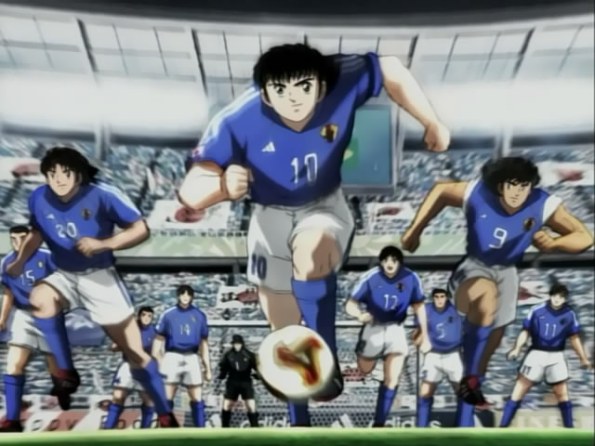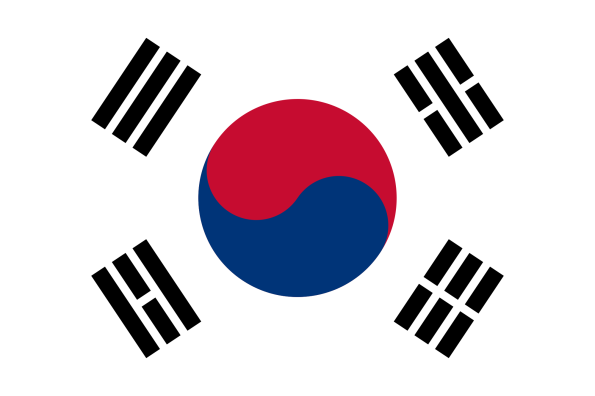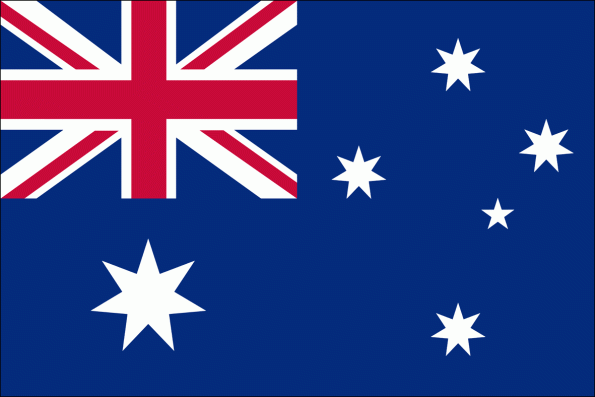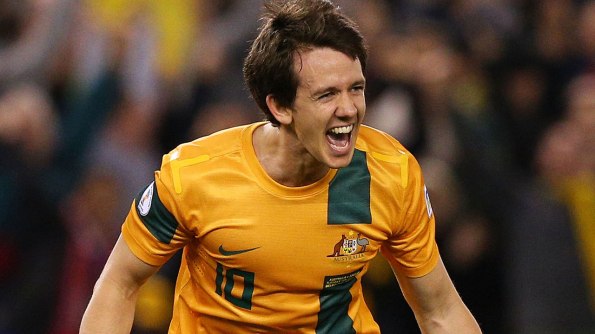Talking to the Expert Panel : An Asian Cup Preview (Part 2)
The Asian Cup will kick off on January 9th as the hosts, Australia, look to start on the right foot against West Asian hopefuls Kuwait. 32 matches and almost 3 weeks later a new champion will be crowned. Champions Japan will look to retain the trophy and add to their record 4 titles. Korea will look to bounce back after a disappointing World Cup. Uzbekistan will try to begin to realize their potential at this level. West Asian hopefuls Iran, under the guidance of Carlos Quieroz, will look to break a four-decade drought. Established Asian players, including Keisuke Honda, Shinji Kagawa, Javad Nekounam, Zheng Zhi and Tim Cahill will be known to most followers. Youngsters like Iraq’s Ali Adnan, UAE’s Ali Mabkhout, Iran’s Alireza Jahanbakhsh and Australia’s Tommy Oar will be looking to etch their names in Asian football history.
With that said, we’ve had the opportunity to speak to a few Asian football experts, whose countries will be taking part at the tournament, for their views and predictions on what lies ahead.
Tim Lee is a Korean-Canadian student currently residing in Canada. He blogs about Korean football at the Tavern of the Taeguk Warriors. He is a part of a crew of 7 writers who hope to provide a space to talk about Korean football in English. He closely follows the exploits of the Korean National Team, Korean footballers plying their trade in Europe, and Korea’s domestic league, the K-League. A passionate Manchester United fan, Tim hopes to one day see the Taeguk Warriors re-live the euphoria of the 2002 World Cup. He is found on twitter on Follow @korfan12
What are the expectations back home in Korea considering the side had a disappointing World Cup?
Depends on who you talk to. Obviously, South Korea, being among Asia’s leaders in football, want to hoist that Asian Cup crown, and represent the continent on the World stage in 2017. However, even after Korea’s finest hours, their claim-to-fames such as the 2002 World Cup, the Asian Cup remains a trophy which the Taeguk Warriors haven’t hoisted since 1960, where the runners-up were Israel. Combine this with a pathetic World Cup that did little to kindle the nation’s interest in the national team, and the general sentiment you get is “don’t care.” Well-informed football fans in Korea recognize the fact that Stielike has had very little time to fix a broken team and expectations for the KNT are at an all-time low.
Has the tournament come too soon for Stielike and the national team?
Perhaps. There is an element of planning for the future. But that’s not the main reason behind these callups. Stielike doesn’t seem to treat this tournament as a learning ground for the future stars of Korean football. There are quite a few players who are injured or unavailable, such as top Korean K-League striker Lee Dong-Gook, who is 35 years young. Uli Stielike is trying to instill confidence in his side, saying that they intend on winning the tournament, which is always the goal for Korea, of course, but it does feel like this tournament has come too soon and at the wrong time for the Korean national team. As I previously mentioned, the World Cup was quite disappointing and there are a lot of cracks in the national team, and none of them are easy fixes. Furthermore, Stielike hasn’t had much time to test his ideal national team. He has spent the last few friendlies taking a look at every player who reasonably stands a chance of getting called up, and half a year later, he would, in a perfect world, begin to impose his identity on the KNT through playing style and callups. It just feels like the KNT needs to build a successful identity, and the tournament has come too soon for Stielike to build one.
Was it surprising that a number of your established European-based players weren’t called up?
No. Stielike had his hands tied here. Ji Dong-Won was injured and seldom got playing time at Borussia Dortmund’s reserve side. He is now in the midst of a move to Augsburg after just 6 months. Yun Suk-Young unfortunately got injured, which is a shame as his form early in the season for QPR was exceptional. Hong Jeong-Ho has been deprived of playing time. And Park Chu-Young, who isn’t really in Europe anymore but was for many years, is struggling at Al-Shabab after a dismal 2014 for him. From Arsenal to Al-Shabab via Watford. Tough luck for who is, historically, one of Korea’s best strikers.
What is the side’s main strength and weakness?
Main strength? I’m not sure we have a main strength per se. Perhaps our wingers. Son Heung-Min could be a handful for Asian sides with his speed on the left side, and his finishing is among the best for the KNT. Lee Chung-Yong has found new life at Bolton Wanderers and puts in a good shift every time he pulls over the red jersey. He is one of our more technical players, usually on the mark with his passes and runs. His finishing is appalling though. You could also make a case for our goalkeeping – Kim Seung-Gyu and Kim Jin-Hyeon have found form at the right time and are a good tandem, while Jung Sung-Ryong, as much I hate him, has experience. Ki Sung-Yueng is also a cool head in midfield.
As for weakness, I could write a book on this. The standout weakness is our inability to score goals. Korea generally plays in a 4-2-3-1/4-3-3 formation, but we don’t have a real striker. Lee Dong-Gook and Kim Shin-Wook are injured, Park Chu-Young is out of form, Ji Dong-Won hasn’t played all season, and so the callups at forward are Lee Keun-Ho, Cho Young-Cheol and Lee Jung-Hyub. Lee Keun-Ho has great workrate but can’t finish. Cho Young-Cheol is better used as a false 9 and is inexperienced, while Lee Jung-Hyub is only getting his first callup, and will only be used as that late-second-half target man panic button player. Can the Korean NT play strikerless? It seems to me that we do not have the creativity to do that, and our goals will be hard to come by, and will take a moment of brilliance from Son and company.
Which team would you like to avoid during the tournament if you had a choice?
Iran. Just because Team Melli has had our number in the last couple of years. It’s a rivalry which Korea last won in 2011 where Yoon Bit-Garam knocked out the Iranians in the Asian Cup, but a game that is always tricky for whatever reason. It’s just a scary fixture altogether, not because of Iran’s strong play, but because of South Korea’s shortcomings in these matches.
Who will be a break-out player for Korea during the Asian Cup?
Son Heung-Min. I know he’s already a star and the best player on the team, but if Korea is to go far in this tournament it will largely be because of him. Son is a talent and has the ability to wreak havoc against Oman and Kuwait. This tournament could also be key for Lee Chung-Yong. As loyal as he is to Bolton, they’re not getting promoted anytime soon, and a good performance in the tournament might just impress the scouts and allow him to move to a bigger club in Europe.
Which non-Korean player do you think can be a star during the tournament?
That’s a tough one. Educated guess – I think Reza Ghochannejad isn’t being as appreciated as he should be, and if Iran manage to have a good run in this tournament, the Charlton Athletic striker should be at the heart of it.
What about the chances of your neighbors, China, Japan and, of course, North Korea?
China won’t be a threat. I doubt that they will be able to beat Saudi Arabia and Uzbekistan. They can’t score and can’t defend. North Korea is a wild card as you just can’t scout them. The reclusive nation recently changed managers and in the normal footballing world, that isn’t the formula for success a month away from the Asian Cup. Japan has the potential to win the tournament on their sheer talent. All contenders have something lacking this year, with Australia failing to scrape out results, Japan and Korea with new managers, Iran having problems of their own, and in a tournament of dysfunctional, unprepared teams, Japan could win based on their talent pool and not on their team play.
Who will win the 2015 Asian Cup?
It kills me to say this, but Japan. They have an easy group (poor little Palestine) and path to the semi-finals. As I said, my own personal opinion is that there is no team in Asia right now which is where it wants to be. If Aguirre’s match-fixing scandal is a distraction, things could go wrong for the Samurai Blue, but I think that they have the most talented players in general among all the national teams in Asia. Okazaki, Hasebe, Kawashima, Kagawa, Kiyotake and, of course, Honda. Simply put, in a tournament of lackluster teams, Japan wins based on sheer individual talent. But I hope that they get knocked out in the group stage in embarrassing fashion. I’m still Korean at the end of the day. I hope Korea do very well but the tournament has come too soon, and injuries aren’t helping much either.
Anthony Yacoub is from Sydney, Australia and has a very strong interest in Australian and Asian football. Anthony is an administrator for Asian Football Feast. You can follow Anthony on twitter Follow @TrickyFC
What are the expectations back home for the hosts considering that its been a rocky last couple of years?
After an encouraging World Cup appearance in Brazil and with the Asian Cup being held on home soil, the Socceroos are expected to be very strong playing in their own backyard and behind a great home support. Everyone expects Australia will make an impact on the Asian Cup and can go one better than they did four years ago when they were beaten 1-0 in extra time of the 2011 Asian Cup final by Japan.
Postecoglou is overseeing a transition towards a new generation of Socceroo footballers. Are they ready to step up?
After plummeting to 100 in the latest FIFA rankings and struggling to score a lot of goals in their recent friendlies, Australia still believe with the current crop they can step up to the challenge and prove the critics wrong. The players feel that they can do that if they really believe in it. Ange Postecoglou purposefully played a lot of away games like Belgium, Middle East and Japan because he wanted the squad to be ready for the Asian Cup.
The manager has won only twice in his opening 14 games in charge. Will this change at the Asian Cup?
Australia have undergone a dramatic transformation in personnel and playing style since Postecoglou took over from Holger Osieck and have shown glimpses of what the Socceroos can do. After an encouraging World Cup campaign Australian fans are totally certain it will all come together during the Asian Cup and Ange will find the right balance between defence and attack and steer the Socceroos to success.
What is the side’s main strength and weakness?
The defence is definitely Australia’s main weakness. They played well in so many games but conceded way too many goals and in international level if you cop two or more goals it is always hard to come back from. In attack, the Socceroos look more competitive trying to attack down the flanks through Matthew Leckie and Robbie Kruse, but in saying that Tim Cahill remain the focal point of the team who is always an aerial threat and more than once in the past has scored some important goals for Australia.
If you could avoid one side during the tournament who would it be and why?
Reigning champions Japan. With the likes of Shinji Kagawa and Keisuke Honda in the squad, Japan still remain the best team in Asia and has to be the hot favourites to win the Asian Cup.
What style of football has the manager instilled?
From day one, Ange Postecoglou has come out and said he would like Australia dominate games and play an attacking game of football. Postecoglou settled on a 4-3-3 system playing out from the back and emphasising on short passes to retain the ball and create opportunities in the final third. With the selections of a total of six forwards, Ange picked an attacking squad for the 2015 Asian Cup and he was quoted more than once that not only he wants to win the Asian Cup but wants to do it playing attacking, attractive football.
Any young Australian player that can emerge as a star in the tournament?
Robbie Kruse. The 26-year-old missed the World Cup earlier this year because of a knee reconstruction. Now a fully-fit Kruse could make a big difference for an Australian team that has been goal shy this year and his return could be crucial to Australia’s success at the Asian Cup. If Australia are to find a goal scorer that isn’t Timmy Cahill, perhaps Robbie Kruse might be able to fire.
Which non-Australian player do you think will emerge as a star during the Asian Cup?
There are a vast number of youngsters who are expected to shine when the Asian Cup gets underway on January 9 in Australia. At just 22, South Korean dynamo Son Heung-min, is considered one of the most exciting prospects in Asian football and without a doubt one of the Asian Cup biggest star. He is comfortable playing any position in the attacking third and has found the net regularly, scoring 11 goals in 26 matches so far this season in the Bundesliga, the DFB-Pokal Cup and the UEFA Champions League for his club Bayer Leverkusen.
Who will win the tournament?
It’s difficult to go past Japan for the title. Defending champions Japan are hot favourites to retain their title in January’s 2015 AFC Asian Cup in Australia. They have quality and experience in abundance across the field and also looked impressive in their recent friendly matches.
Dan Orlowitz is a football journalist and photographer based in Tokyo, Japan. He writes about Japanese and Asian football for Football Channel Asia and can be found on Twitter Follow @aishiterutokyo
What are the expectations back home for Japan on the back of what I’d say was a slightly disappointing World Cup?
There are general expectations that Japan are supposed to win, but overall hype levels have been fairly low after the World Cup broke everyone’s heart. Aguirre is still finding his way and picking his squad, but there are quite a few newer faces that we’re looking forward to seeing on the pitch.
Javier Aguirre has had a lot of controversy surrounding him recently. How has the reaction back home been?
Here the witch hunt has been aimed less toward Aguirre and more toward the JFA, who on their best days don’t think too highly of the media. Former technical director (and now general secretary) Hiromi Hara, who basically handpicked Aguirre, has come under a lot of fire, and the general opinion is that the JFA at the very least failed to do their due diligence.
As for the allegations themselves, in Japan they mean more because this is a country where accusation = guilt 99% of the time. Was he involved in match-fixing? I honestly don’t know. But when this sort of thing is reported in Spain and then in Japan, a lot gets lost in translation. As he said in his press conference last weekend, “This isn’t a scandal in Spain, Mexico, or America, yet it is in Japan.”
Japan hasn’t been able to produce a top striker for a long time (arguably since Kazuyushi Miura). Why is it like that?
No love for Hidetoshi Nakata?
A big problem is ‘Captain Tsubasa’ syndrome – it’s a famous manga that influenced many of the world’s greatest players, but it also over-romanticized the role of central midfield (embodied most by players such as Shunsuke Nakamura). Being the ‘control tower’, keeping the team organized, setting up goals rather than scoring them, you get the idea.
The role of striker is by nature a very selfish position, and that simply doesn’t mesh with Japan’s teamwork-oriented culture which is why most of the Brazilians in the J-League are attackers. Another issue is that J-League defenses simply aren’t very good these days, so it’s easy for strikers to look good in domestic play and then fail to impress internationally.

The real reason why Japan has failed to produce a top striker for years? Captain Tsubasa (known as Captain Majed in the Arab World)
What is the side’s main strength and weakness?
Strengths: Japan will always have great teamwork and organization. When our attack is strong it’s *very* strong, and any position player is capable of scoring a goal.
Weakness: Defense, defense, defense. A lot has changed since Okada’s counter-heavy formation in South Africa, but it’s starting to improve now that Konno has been replaced by Morishige and Yoshida is getting playing time for his club. Atsuto Uchida’s absence will hurt.
If you could avoid one side during the tournament who would it be and why?
China, because that match will inevitably end with a Japanese player being stretchered off, never to appear in the rest of the tournament.
Has Aguirre done anything to change the style of football?
He’s swapped out Zaccheroni’s preferred 4-2-3-1 for a 4-3-3, and aimed for a more consistent attacking/defending balance, but it’s a bit too early to say how much things have changed. The roles of the established stars (Kagawa, Honda, Endo, etc) are mostly unchanged.
Any young Japanese players that can emerge as a star in the tournament?
FC Tokyo’s Yoshinori Muto. He’s actually finishing up his degree at Keio University this year so he became known as “Keio Boy” in Tokyo and had a fantastic rookie season with 13 goals. If he can avoid getting caught up in the hype train that derailed Yoichiro Kakitani and other would-be starlets he’s got real potential.
Which non-Japanese player do you think will emerge as a star during the Asian Cup?
That’s tough, and depends on how you define ‘star’. UAE’s Omar Abdulrahman is a good shout from West Asia, and at 22 South Korea’s Son Heung-min is absolutely capable of shining.
How do you think neighbours China and the two Koreas will do?
South Korea are always capable of getting to the semis or higher. North Korea could make it to the quarterfinals but they struggled as recently as November’s East Asian Cup qualifying and they have no tactical Plan B, so they won’t last long if they lose their discipline. China are in decent form and can certainly shock but I don’t think they’ll make it out of their group.
Japan start as favorites but who do you think will be your closest challengers?
Australia are looking up and of course they’ll have fantastic home crowds backing them wherever they go.
That said, it’s really hard to pick a favorite. None of the ‘top’ teams are in particularly great form for one reason or another. This may be the most open Asian Cup in the last few editions. But if the usual suspects find a rhythm and start winning I think it will be very hard for any up-and-comers to upset the established order of things.





